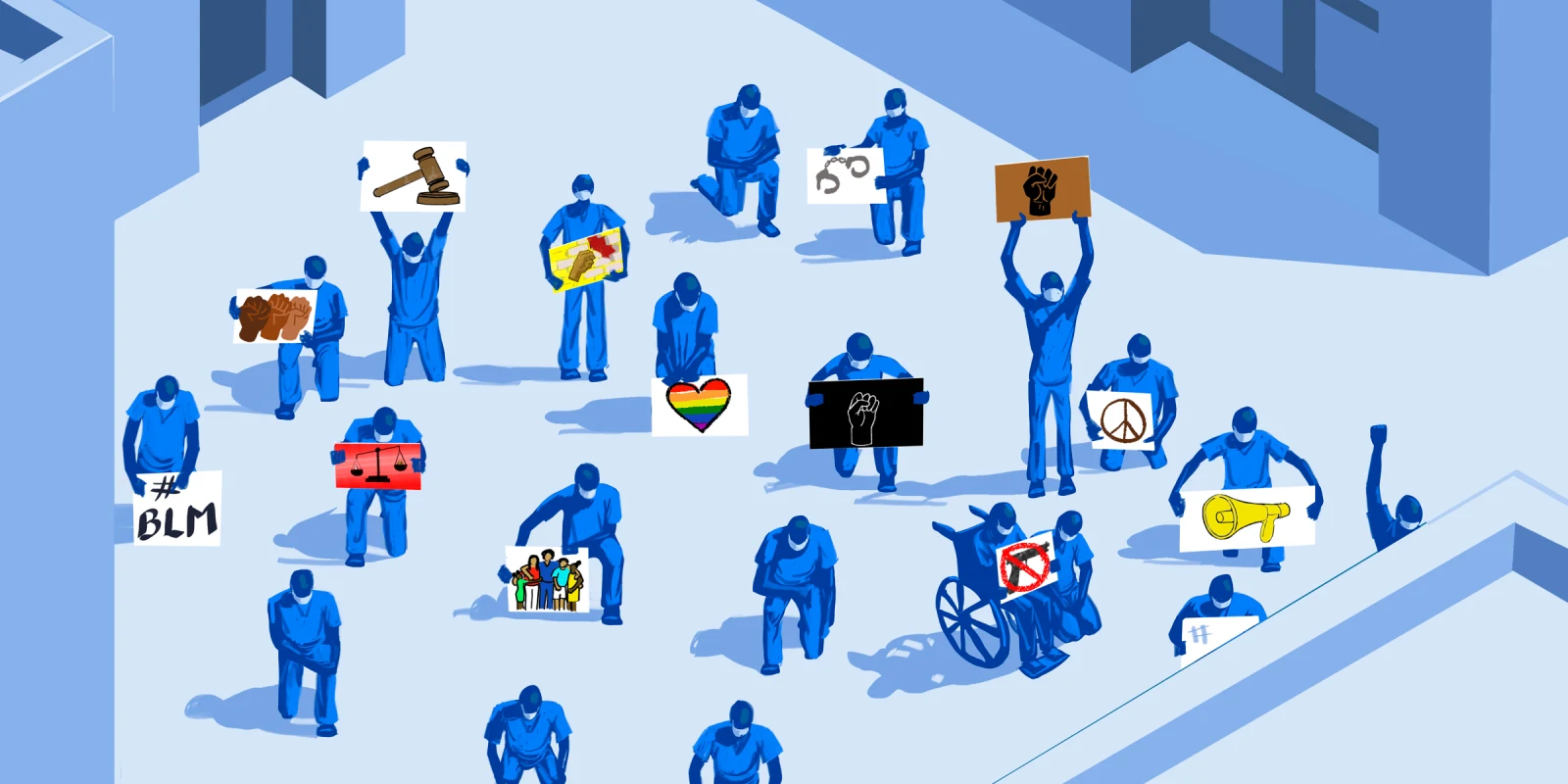 The nature of the coronavirus has not changed: Large gatherings of people increase the risk of transmission of a deadly virus that could kill me, my loved ones, and my community. I have emphasized this for the past few months to my patients and scolded anyone who casually and carelessly broke public health recommendations at their convenience. However, after witnessing the murder of George Floyd by the police, I felt I had no choice but to defy public health recommendations and risk my reputation as a doctor to hypocritically march among thousands of caregivers during a pandemic.
The nature of the coronavirus has not changed: Large gatherings of people increase the risk of transmission of a deadly virus that could kill me, my loved ones, and my community. I have emphasized this for the past few months to my patients and scolded anyone who casually and carelessly broke public health recommendations at their convenience. However, after witnessing the murder of George Floyd by the police, I felt I had no choice but to defy public health recommendations and risk my reputation as a doctor to hypocritically march among thousands of caregivers during a pandemic.
I marched because I was tired of the increasing futility of my job as a doctor for Black Americans. As a primary care physician, my goal is to ameliorate human suffering and help my patients achieve well-being. Unfortunately, police brutality prevents me from achieving that goal, as it ends the lives of Black Americans suddenly, violently, and traumatically. The prominent murder of Trayvon Martin happened on February 26, 2012. Since then, numerous solutions for ending police violence against Black Americans have been proposed, including a playbook from the Task Force on 21st Century Policing and recommendations from the American Public Health Association. But substantial change still has not happened due to a lack of will and power to implement these solutions in communities across the U.S. Black men are still 2.5 times more likely to be killed by the police, and we continue to see horrific events like the murders of Breonna Taylor and George Floyd publicized to the world. How can I provide care to extend the life of Black Americans if they’re at risk of a violent death at any moment, regardless of my actions? How much longer can I remain complicit in these murders by not using my power as a doctor to speak up?
I marched because, while over 100,000 lives have been lost to COVID-19 this year, more than 83,000 Black American lives are lost every year due to systemic racism. With the COVID-19 pandemic, we have had to suffer not only through the physical consequences of a deadly virus but also the economic and mental issues resulting from high levels of social isolation. However, this suffering has a timeline: We have a phased plan to reopen the economy and restart our lives, as the capacity to test, trace, and isolate increases and the incidence of COVID-19 cases decreases. We have hope that there’ll be a COVID-19 vaccine in early 2021. But what is our timeline to end systemic racism? Black Americans are suffering disproportionately throughout this pandemic. They are more likely to have lost their jobs and face economic insecurity, more likely to be labeled essential workers in low-paying jobs where they risk their health, and more likely to die of COVID-19. And during this time, they continue to be murdered publicly by police. Should I wait until the COVID-19 pandemic is controlled to march? Or do we all need to risk our lives now, during a pandemic, so the world understands the gravity of this public health emergency?
I marched because, though I may be able to save my unborn child from COVID-19, I cannot save him from a world that will judge him by the color of his skin. How can I rest knowing I can save my child from COVID-19 only to fear that he may suffer daily and risk violent death because of the color of his skin? The consequences and risks of staying silent are too large. I have a duty to wield my power and a moral obligation as a doctor to roar and march for justice. Taking the risk to march during a pandemic is worth fighting against the threat of losing black lives indefinitely due to systemic racism. I will not stay silent.
Raj Sundar is a family medicine doctor in Seattle, WA. His life purpose is to lead people on a journey towards a more compassionate, equitable, and dignified humanity.
Illustration by Jennifer Bogartz
Click here to see more perspectives on COVID-19 from the Doximity network.
Click here for up-to-date news about COVID-19 on Doximity.





